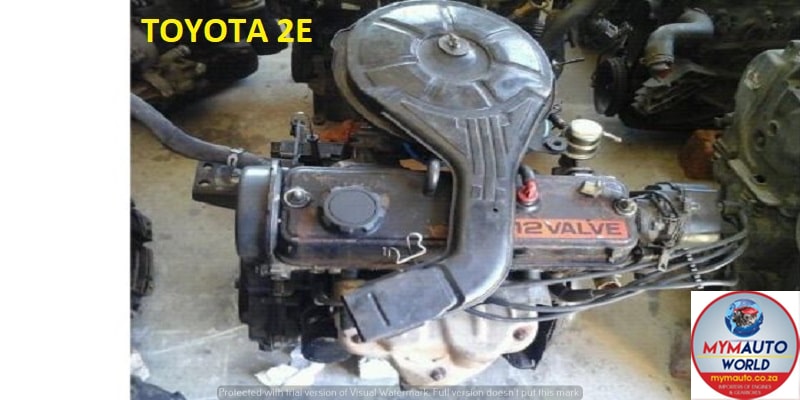Update Your Vehicle's Heart: Toyota Tazz Engine for Sale, Quality Guaranteed
Update Your Vehicle's Heart: Toyota Tazz Engine for Sale, Quality Guaranteed
Blog Article
Engine Buying Professional Tips on Choosing the Right Engine for Your Certain Requirements
Choosing the appropriate engine for your specific demands includes a complicated interplay of variables that go beyond simple horsepower numbers. By delving into the details of power versus effectiveness, assessing gas scores, and budgeting for long-lasting prices, one can really maximize their engine option.
Power Vs. Efficiency: Discovering the Balance

When choosing an engine, it is crucial to strike a balance between power and performance to satisfy your specific requirements properly. Power refers to the engine's capability to generate energy for propulsion, figuring out variables like acceleration, pulling ability, and general efficiency (Toyota Tazz Engine For Sale). On the various other hand, performance associates to just how well the engine utilizes gas to generate power, influencing aspects such as gas economy and environmental kindness
Attaining the right equilibrium between power and effectiveness is important due to the fact that an engine that is as well effective may take in extreme gas, bring about higher operating prices and unnecessary pressure on the environment. On the other hand, an engine that focuses on performance over power might result in slow performance, particularly popular situations like lugging hefty lots or driving uphill.
To make an informed decision, think about variables such as your common driving problems, the desired use of the automobile, and your individual choices. By assessing your top priorities and requirements, you can pick an engine that strikes the ideal balance in between power and efficiency, making sure optimum efficiency while lessening environmental influence and operating costs.
Understanding Engine Dimension and Kind
Additionally, engine type plays an essential duty in figuring out the performance qualities of an engine. Typical engine kinds include inline engines, V engines, and rotary engines, each with its distinct advantages and disadvantages. The engine type affects factors such as the engine's size, weight circulation, and power distribution. Recognizing the interaction between engine size and kind is essential in choosing an engine that aligns with your details requirements and concerns, whether it be power, effectiveness, or a balance of both.
Consider Your Vehicle's Requirements
If you are looking for an engine for a sturdy truck that will be utilized for towing, you will certainly need a powerful engine with high torque abilities. On the various other hand, if you are selecting an engine for a small auto primarily utilized for city travelling, gas performance may be a much more essential element to take into consideration.

Examining Gas Effectiveness Scores
Evaluating fuel efficiency ratings is a vital element of choosing the best engine for your car, making sure expense savings and environmental sustainability. Gas performance scores, usually determined in miles per gallon (MPG) for gas engines or kilowatt-hours per 100 miles (kWh/100 miles) for electric engines, show exactly how far a vehicle can take a trip on a details quantity of fuel or electricity. Higher MPG or lower kWh/100 miles worths symbolize much more efficient engines, converting to minimized fuel prices and reduced carbon emissions.
When evaluating gas effectiveness ratings, consider your driving needs and behaviors. A find more highly fuel-efficient click this link engine can result in substantial cost savings over time if you commute long ranges daily. Furthermore, contrast different engine alternatives within the exact same lorry course to identify one of the most cost-effective selection. Aspects such as engine size, weight, the rules of aerodynamics, and hybrid or electrical abilities can all influence fuel performance.
Budgeting for Long-Term Prices
Purposefully intending for lasting expenditures is essential when selecting an engine, guaranteeing financial sustainability over the car's lifespan. While the initial purchase rate of an engine is a substantial variable, it is critical to take into consideration the long-lasting expenses associated with maintenance, fixings, and gas usage.
Additionally, researching the accessibility and cost of substitute components for the selected engine is essential in budget preparation. By thoroughly budgeting for these lasting expenses and factoring other them right into the decision-making process, individuals can pick an engine that not only satisfies their immediate requirements yet likewise continues to be affordable throughout its life-span.
Final Thought
To conclude, choosing the appropriate engine for your certain demands needs balancing power and efficiency, understanding engine dimension and type, considering your lorry's demands, reviewing fuel efficiency scores, and budgeting for lasting costs. By thoroughly thinking about these variables, you can ensure that you select an engine that satisfies your requirements and gives optimum performance for your vehicle.
To even more fine-tune the choice procedure of an engine that strikes the optimum equilibrium in between power and performance, it is important to dig into the ins and outs of comprehending engine dimension and kind. Engine size refers to the overall volume of air and fuel that can be pushed through the engine cylinders. Common engine types consist of inline engines, V engines, and rotating engines, each with its special benefits and disadvantages. Comprehending the interplay between engine size and type is vital in picking an engine that straightens with your details demands and top priorities, whether it be power, effectiveness, or a balance of both.
Fuel efficiency rankings, commonly gauged in miles per gallon (MPG) for fuel engines or kilowatt-hours per 100 miles (kWh/100 miles) for electric engines, indicate how much an automobile can travel on a particular amount of gas or electrical energy.
Report this page